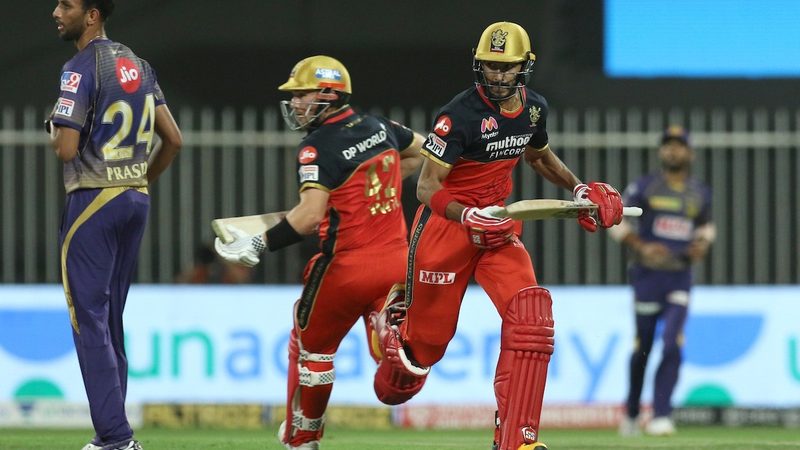
"On a pitch like that, only AB can do that. It was a special knock. We got 195 purely because of the genius of that man."
Virat Kohli's words at the end of Bangalore's 82-run win over Kolkata speaks of the sheer genius of AB de Villiers. But, if you think about it, it also shows the atrocities of starting too slowly or not attacking enough in T20s.
A split of Bangalore's batting innings maybe gives a clearer picture of what unfolded at Sharjah on Monday.
De Villiers: 73* (33) - 13.27 RPO
Rest of Bangalore: 112 (87) - 7.72 RPO
AB de Villiers walked in at a point when Bangalore were 94/2 in 12.2 overs. Between overs 7 and 12, they had made just 32 runs at a scoring rate of just over 6 runs per over. This despite having an established opener like Finch starting off reasonably well.
Finch made 47 in 37 balls, a scoring rate of 7.62 which is below even the average of batsmen excluding de Villiers. Finch's knock was terrible for Bangalore and could have been worse had he not been dismissed.
Virat Kohli's knock was equally questionable given that RCB bat deep with hitters, Chris Morris and Isuru Udana available from the order. Kohli scored just one boundary in his 28-ball knock of 33. While it can be argued that he was rotating strike so de Villiers could hit, if the South African hadn't quite taken off in the way he did, the approach would've been exposed more.
In #IPL2020
Teams scoring more non boundary RPO than opposition
- 15 wins in 26 games (57% win rate)
Teams scoring more boundary RPO than opposition
- 25 wins in 26 games (96.15% win rate)
The only side to have won scoring fewer boundaries than opposition was RCB vs RR.
— Clive (@_vanillawallah) October 12, 2020
As mentioned in the tweet, the value of boundaries and contribution to win percentage is immense. You could be a terrific strike rotator like a Kohli, Rahul or Warner, but if you can't up the tempo after getting solid starts - which is fraught with the possibility of failure more than success - you leave your mates to do additional work to get your team to a big total or chase down targets.
Consolidation in T20s to the point of there being a boundary drought is quite questionable especially when you have 10 wickets and just 20 overs to play out.
The damage that Finch and Kohli did was resurrected thanks to a genius knock from de Villiers. Kohli himself went on to play a blinder the other day after a solid start. But on off days like these, it does need someone of the quality of de Villiers to make up for those starts.
Think of Punjab the other day against Kolkata. They were 113/0 in 13 overs, chasing 165 for a win against Kolkata. That's seven overs to make 53 runs with all 10 wickets in hand. Rahul, on 58 off 47 balls at the time of Mayank Agarwal's dismissal, made just 16 runs in his next 11 balls and was dismissed in the penultimate over, effectively costing them the game.
That Punjab lost chasing a modest score after a terrific start with eight wickets left in the last two overs explains everything you need to know about batting slow and why taking less risk is actually riskier.
Quite a few batsmen, especially openers, have been far more conservative this season of the Indian T20 League and it has cost teams. From Shubman Gill to KL Rahul, Shane Watson, David Warner, Aaron Finch and Jonny Bairstow, a lot of them haven't quite shown the intent to attack and left too much for the others or themselves to make up later on.
Feature image courtesy: Twitter / @IndianT20League




















